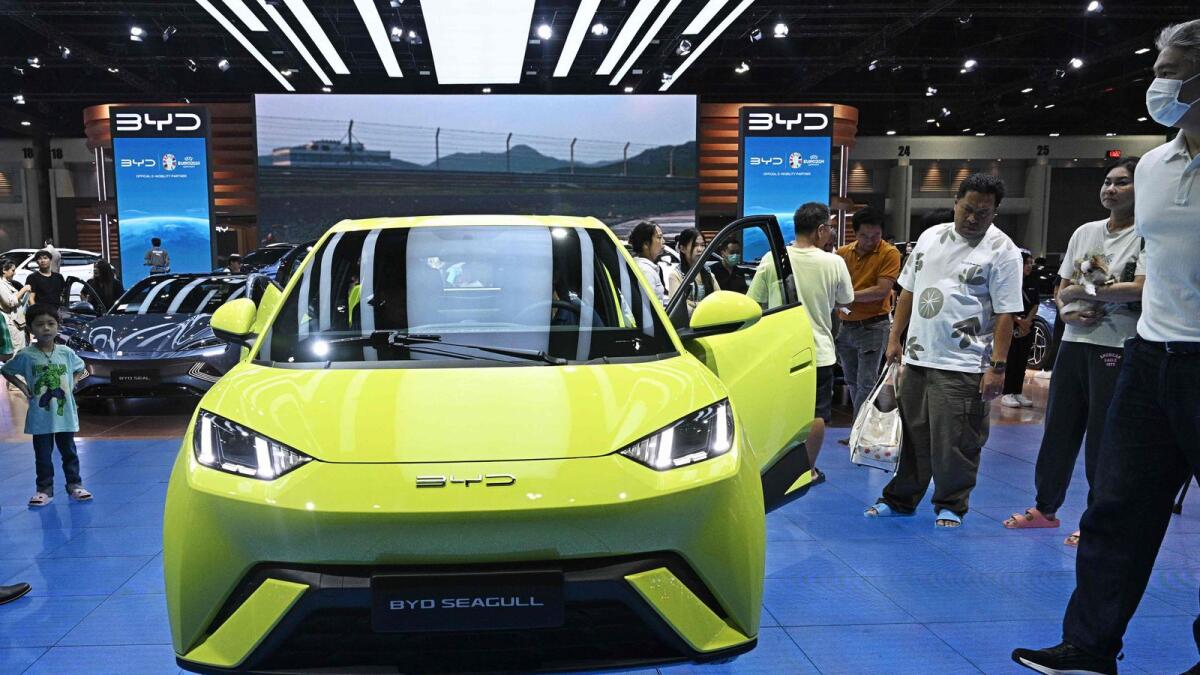In response to unfair state subsidies on Chinese electric car imports, the European Union has imposed provisional duties of up to 38 percent. The investigation into Chinese electric vehicle manufacturers was launched last year to investigate whether state subsidies were giving Chinese manufacturers an unfair advantage over European automakers. Despite warnings from Beijing about a potential trade war, the EU’s trade chief, Valdis Dombrovskis, concluded that the subsidies were causing economic harm to EU electric car makers.
The EU has imposed provisional duties on major Chinese manufacturers such as BYD, Geely, and SAIC. The rates were adjusted slightly downwards for Geely and SAIC after further information was provided by interested parties. These duties will take effect from Friday, with definitive duties to be implemented in November for a period of five years, pending a vote by the EU’s 27 member states. Electric car producers in China that cooperated with the EU will face a lower tariff compared to those that did not cooperate.
Despite ongoing talks between Chinese and EU trade officials, the EU is committed to finding a mutually acceptable solution that addresses WTO rules. China has signaled readiness to retaliate by launching an anti-dumping probe into pork imports, among other potential probes. Chinese officials have criticized the EU’s actions and accused them of escalating trade frictions and instigating a trade war, while the United States has already imposed 100 percent customs duties on Chinese electric cars.
The EU faces a delicate balancing act as it aims to defend Europe’s auto industry, meet carbon emission targets, and avoid a showdown with China. With plans to phase out new fossil fuel-powered cars by 2035, the EU is focused on increasing electric vehicle adoption. Chinese-made vehicles have seen a significant increase in market share in EU electric car sales in recent years, with Chinese brands accounting for around eight percent of that share.
The higher tariffs are expected to reduce vehicle imports from China by 42 percent and could lead to a slight increase in electric car prices in the EU. Germany, a major trade partner with China, is concerned about potential retaliation and its impact on German auto manufacturers. In contrast, French automakers have welcomed the tariffs as a way to level the playing field. Tesla, owned by Elon Musk, has requested its own duty rate based on evidence it has submitted to Brussels.
As the EU continues to engage with China on resolving the issue, the outcome of the investigation and the imposition of duties will have significant implications for the electric car market and trade relations between the two economic powerhouses. The EU’s efforts to address unfair trade practices while promoting the growth of its electric vehicle market will shape the future of the industry and international trade dynamics.











